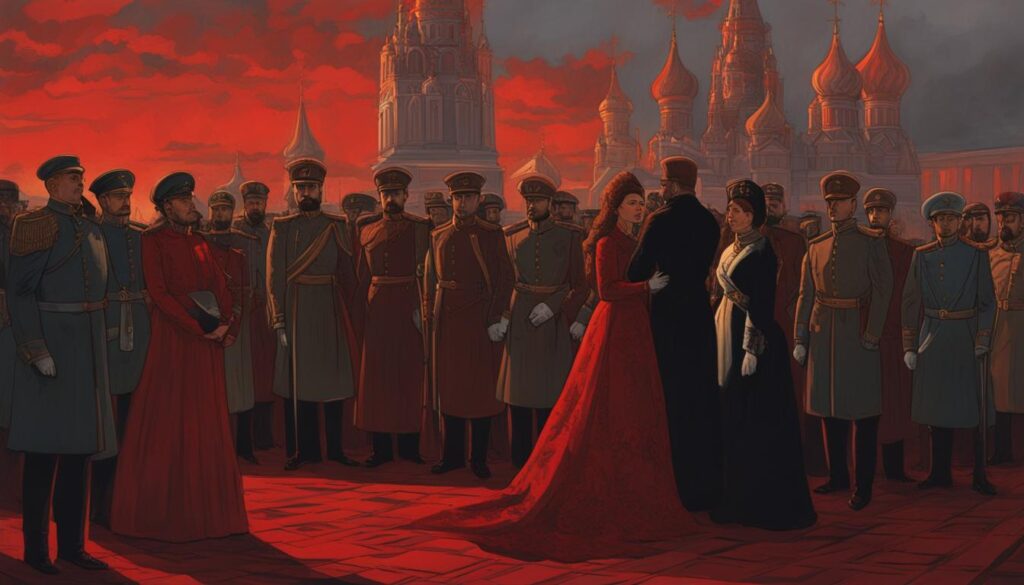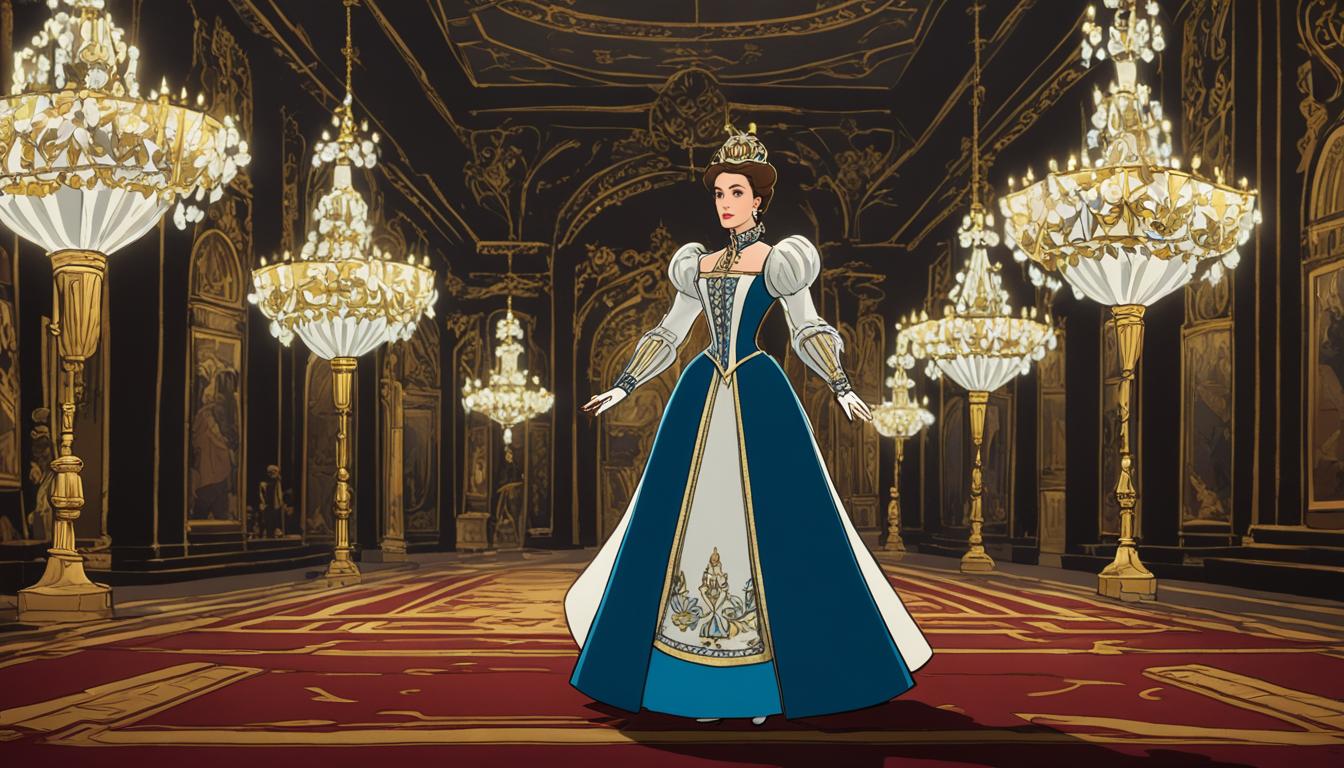Welcome to the book summary of “Alexandra: The Last Tsarina” written by Carolly Erickson. In this article, we explore the life and legacy of Alexandra, the last Tsarina of Russia. Erickson’s historical biography provides a fascinating insight into the tumultuous reign of the Romanovs and the influence of Alexandra on the Russian Empire during this critical period of history. Join us as we delve deeper into the life of Alexandra, her role as Empress, controversies that surrounded her, and her enduring legacy. But first, let’s set the context for this book by introducing the author and a brief overview of “Alexandra: The Last Tsarina.”
About Alexandra: The Last Tsarina
Alexandra Feodorovna, born as Alix of Hesse and by Rhine, was the last Tsarina of Russia. She was born on June 6, 1872, in Darmstadt, Germany, into the Grand Ducal House of Hesse. Alexandra’s father, Prince Louis of Hesse, was the son of Grand Duke Ludwig III of Hesse. Her mother, Princess Alice, was the daughter of Queen Victoria of the United Kingdom.
In 1894, Alexandra married Tsar Nicholas II and became the Empress of Russia. The couple had five children together, four daughters and a son. Alexandra was deeply devoted to her husband and her family, and her role as the Tsarina gave her considerable influence in Russian politics and society.
Carolly Erickson’s historical biography “Alexandra: The Last Tsarina” provides a vivid portrayal of Alexandra’s life and pivotal role in Russian history. The book explores the complexities of Alexandra’s personality and the challenges she faced during her reign as Empress.
As a historical biography, “Alexandra: The Last Tsarina” provides readers with a detailed understanding of Alexandra’s life and legacy.
Historical Context of the Russian Empire
To better understand the life and times of Alexandra, it is important to first consider the historical background of the Russian Empire. For centuries, Russia was ruled by the Romanov dynasty, which began with the ascension of Michael Romanov in 1613. The Romanovs oversaw a vast and diverse empire that encompassed various ethnic and religious groups, spanning multiple continents.
The political climate of the Russian Empire was frequently volatile, marked by periods of both prosperity and crisis. Economic growth and reforms under rulers such as Catherine the Great were contrasted with political unrest and social unrest, such as the Decembrist Revolt of 1825.
The challenges faced by the royal family were numerous, particularly in the lead-up to the First World War. There were mounting pressures from both internal and external forces, such as widespread poverty and political radicalism, as well as tensions from rival imperial powers. This complex landscape would ultimately inform and shape Alexandra’s life and legacy.
Romanov Dynasty Timeline
| Michael I | 1613-1645 |
|---|---|
| Alexis I | 1645-1676 |
| Peter I | 1682-1725 |
| Catherine I | 1725-1727 |
| Peter II | 1727-1730 |
| Anna | 1730-1740 |
| Ivan VI | 1740-1741 |
| Elizabeth I | 1741-1762 |
| Peter III | 1762 |
| Catherine II | 1762-1796 |
| Paul I | 1796-1801 |
| Alexander I | 1801-1825 |
| Nicholas I | 1825-1855 |
| Alexander II | 1855-1881 |
| Alexander III | 1881-1894 |
| Nicholas II | 1894-1917 |
Early Life and Marriage of Alexandra
Alexandra Feodorovna was born on June 6th, 1872, as Princess Alix of Hesse and by Rhine in Darmstadt, Germany.
She was the youngest daughter of Princess Alice of the United Kingdom and Louis IV, Grand Duke of Hesse. Alexandra was raised in a close-knit family and received a religious education.
At the age of sixteen, she met her future husband, Nicholas Romanov, the Tsarevich of Russia, during a family visit to St. Petersburg. The couple fell in love, and Alexandra converted to Russian Orthodoxy in order to marry Nicholas and become the future Empress of Russia.
Their marriage took place in November 1894, and it was a significant event in both Russian and European history.
“The wedding ceremony in the Cathedral of the Assumption was magnificent, with glittering jewels, massive bouquets of flowers, and brocade dresses. The newlyweds were greeted by cheering crowds, eager to see the future Tsarina of Russia.”
Despite their genuine love for each other, Alexandra’s marriage to Nicholas was not without controversy due to her German heritage and her perceived influence over the Tsar.
In the next section, we explore Alexandra’s role as Empress and the responsibilities she undertook.
Alexandra’s Role as Empress
As the Empress of Russia, Alexandra had significant royal responsibilities and exercised considerable political influence during her husband’s reign. The Romanov dynasty was facing numerous challenges during Alexandra’s time as Empress, including the rise of socialist movements and growing unrest among the people.
Alexandra took an active interest in political affairs and often advised her husband, Nicholas II, on matters of state, even though this was traditionally outside the purview of royal women. She was widely seen as the power behind the throne, with many believing that her influence extended beyond what was publicly acknowledged. The Empress also had a personal interest in social issues, particularly those related to education and healthcare.
“No one can know the state of the Empire better than I. I see what doctors’ reports do not tell me. People come to me from all corners of Russia seeking my help and advice.”
Alexandra wrote this in a letter to her husband, highlighting her deep concern for the wellbeing of the common people. Despite her efforts, however, Alexandra’s political influence was often undermined by her association with the mystic Rasputin, whom she believed had miraculous healing powers that could help her son, the heir to the throne. This led to significant controversy and scandal, damaging her reputation and contributing to the eventual downfall of the Romanov dynasty.
Controversies and Scandals Surrounding Alexandra
Alexandra, the last Tsarina of Russia, is infamous for her controversial decisions and associations with the mystic Rasputin. Many questioned her influence on her husband, Tsar Nicholas II, and his ability to rule effectively.
Due to Alexandra’s reliance on Rasputin, rumors circulated that he held undue influence over the royal family. It is said that he made decisions on behalf of the Tsar and his wife, and had access to confidential information that he exploited to his benefit.
One of the most scandalous aspects of Alexandra’s relationship with Rasputin was the rumor that they were having an affair. While it is unclear whether this was true, the rumors were enough to further damage Alexandra’s reputation and legitimacy as Tsarina.
The influence of Rasputin on Alexandra and the monarchy ultimately led to widespread criticism and calls for reform. Many saw Alexandra’s connection to Rasputin as evidence of her poor judgment and shortcomings as a leader.
“The Empress, power-mad, had fallen completely under Rasputin’s sway and no decision was made without his advice.” – Prince Felix Yusupov
Alexandra’s Influence on Domestic Policy
As Empress of Russia, Alexandra wielded significant influence over domestic affairs. She was deeply committed to enacting social reforms that would benefit the Russian people.
Alexandra was a vocal advocate for improvements in healthcare and education. She recognized the importance of these services in raising the standard of living for all citizens, and worked tirelessly to ensure they were available to as many people as possible.

“The fundamental cause of socialism is the leadership of the people and their guidance towards the higher possibilities, out of the darkness wherein they move today.”
Alexandra was also deeply involved in charitable organizations. Her commitment to providing aid to the most vulnerable members of society was notable and helped to establish her reputation as a caring and compassionate leader.
The Alexandra Children’s Hospital
One of Alexandra’s most significant charitable efforts was the establishment of the Alexandra Children’s Hospital in St. Petersburg. The hospital was dedicated to providing high-quality medical care to children from all backgrounds, regardless of their ability to pay.
| Year | Number of Patients Treated | Percentage of Patients Treated Free of Charge |
|---|---|---|
| 1905 | 540 | 32% |
| 1910 | 1,257 | 52% |
| 1915 | 2,751 | 78% |
The hospital quickly became a symbol of Alexandra’s commitment to social welfare and her desire to help those in need. Its success was a testament to her tireless work and dedication to improving the lives of the people of Russia.
Alexandra’s Motherhood and Family Life
Alexandra, the last Tsarina of Russia, was a devoted mother to her five children: Olga, Tatiana, Maria, Anastasia, and Alexei. She was deeply involved in their education and upbringing, often homeschooling them and encouraging their artistic and intellectual pursuits.
Despite her love for her children, Alexandra faced several challenges as a mother due to the demands of her position as an empress and the political turmoil of the time.
The royal family’s secluded lifestyle and intense devotion to each other gave rise to rumors and criticism, with some accusing them of being out of touch with the needs of their people. However, those close to the family described them as being deeply united, with Alexandra playing a pivotal role in maintaining their close bonds.
Alexandra’s children were brought up in an environment of privilege, but they were also taught to be empathetic and charitable. Alexandra and Nicholas II were both deeply committed to charity work and encouraged their children to participate in various charitable organizations. The royal children were also exposed to the suffering and challenges faced by the less fortunate, and they often visited hospitals and orphanages.
Alexandra’s role as a mother was especially challenging after Alexei, the heir to the throne, was diagnosed with hemophilia. To ensure that he received the best care possible, Alexandra sought the help of Grigori Rasputin, a controversial mystic with apparent healing abilities. This decision further fueled criticism and scandal surrounding the royal family.
Despite the challenges she faced, Alexandra remained fiercely devoted to her family until the end. The fall of the Romanov dynasty and the tragic fate of Alexandra and her children remain a haunting reminder of the perils of absolute power and the importance of family bonds in times of crisis.
World War I and Alexandra’s Role
The outbreak of World War I had a significant impact on the Russian Empire, and Alexandra found herself embroiled in conflicts that would shape the course of history.
As the war dragged on, Alexandra became increasingly involved in war efforts, taking on more responsibilities as Nicholas II struggled to manage the empire. She worked tirelessly to support troops on the front lines, visiting hospitals and offering support to wounded soldiers.
Despite her efforts, Alexandra’s influence during the war was not without controversy. She clashed with military leaders and other politicians, often advocating for more aggressive tactics that were seen as risky and ill-advised. Some questioned her judgment and ability to lead, while others accused her of favoritism and nepotism.
“The Tsarina and her German circle are the main cause of our misfortunes. Everything must be done to remove them from power.” – Russian General
Despite the criticism, Alexandra’s role during World War I remains a subject of much debate and fascination among historians and scholars.
In the next section, we examine the fall of the Romanov dynasty and the aftermath of their rule.
Fall of the Romanovs and Aftermath
The fall of the Romanov dynasty was a turning point in Russian history. The Bolshevik Revolution, led by Vladimir Lenin, overthrew the monarchy and marked the beginning of the Soviet era. The execution of Romanovs, including Tsar Nicholas II, his wife Alexandra, and their children, symbolized the end of an era.
The Bolshevik Revolution was a culmination of political and economic discontent that had been growing for decades. The Russian Empire was facing many challenges, including rampant poverty and hunger, as well as the devastating effects of World War I. The people’s discontent, combined with the revolutionary ideas of Lenin and his followers, led to the overthrow of the monarchy and the establishment of a new government.

The Romanovs were exiled to Siberia, where they were imprisoned for several months. In July 1918, the family was executed in a basement room in Ekaterinburg by Bolshevik soldiers. The news of their deaths shocked the world and solidified the downfall of the Romanov dynasty.
“It is as if the abyss of Hell had opened up, and Russia had been plunged into it”, French diplomat Maurice Paleologue wrote upon hearing of the execution.
Legacy of the Fall
The fall of the Romanovs and the Bolshevik Revolution had a significant impact on Russia and the world. The legacy of the Romanov dynasty was permanently transformed, and the Soviet Union’s rise marked a new era in world politics and ideology. The execution of the Romanovs was a tragic end to a tumultuous period in Russian history, one that continues to fascinate and captivate historians and the general public alike.
Legacy of Alexandra: The Last Tsarina
As the last Tsarina of Russia, Alexandra left a lasting legacy that still captures the imagination of people around the world today. Her reign was marked by political turmoil, scandal, and tragedy, but it also offered a glimpse into a fascinating and complex woman who wielded significant power and influence during a critical period in Russian history.
One of Alexandra’s enduring legacies is her impact on the Russian monarchy. As a woman in a position of power, she challenged traditional gender roles and defied expectations, using her influence to advocate for social and political reforms. Her devotion to her husband and family was also a hallmark of her rule, with her unwavering support of Nicholas II earning her both admiration and criticism.
Alexandra’s infamy and the controversies that surrounded her also contributed to her legacy. Her relationship with the mystic Rasputin, who many believed held an unhealthy sway over her decisions, was just one of the scandals that rocked the Russian Empire. However, despite the scandal, her supporters admired her for her loyalty and steadfastness.
Finally, Alexandra’s historical significance cannot be overstated. Her reign marked the end of the Romanov dynasty and set the stage for the Bolshevik Revolution, which ultimately led to the downfall of the Russian Empire. Her life and rule offer a compelling glimpse into the complexities and challenges of monarchy and the shifting political and social landscape of the late 19th and early 20th centuries.
“She was not only beautiful; she possessed an entrancing charm that could not fail to captivate all who came into contact with her…”
The Influence of Alexandra
Alexandra’s influence on Russia and the world cannot be understated. Although her reign was marked by controversy and tragedy, her example continues to inspire and intrigue. Her advocacy for social and political reform, her devotion to her husband and family, and her indelible place in Russian history are all part of her enduring legacy.
Conclusion
In conclusion, Carolly Erickson’s “Alexandra: The Last Tsarina” offers a captivating portrayal of one of Russia’s most enigmatic figures. The book sheds light on Alexandra’s life as the Russian Empress and her influence on the monarchy during a tumultuous period in Russian history.
Through Erickson’s insightful analysis, readers gain a deeper understanding of Alexandra’s upbringing, marriage to Nicholas II, and role as Empress. We explore the controversies and scandals that surrounded her, including her relationship with the mystic Rasputin and her impact on domestic policy.
The book also chronicles the fall of the Romanov dynasty and the aftermath of their rule. We examine the events leading to the Bolshevik Revolution, the exile of the royal family, and the ultimately tragic fate of Alexandra and her family.
Overall, “Alexandra: The Last Tsarina” offers a rich and nuanced portrait of a woman whose legacy continues to fascinate historians and the general public alike. As we reflect on Alexandra’s life and legacy, it serves as a reminder of the enduring impact that individuals can have even amidst the most tumultuous of times.



